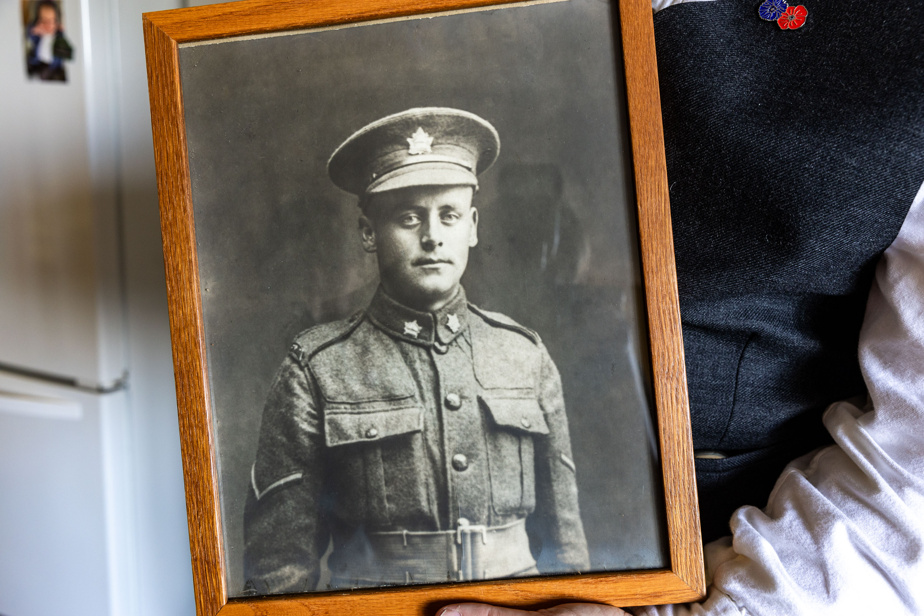“My grandfather never really spoke to me about his father. If this object had not been found, I would perhaps never have heard of this whole story,” emphasizes Édouard Dansereau.
This story is that of Édouard Clément. Enlisted in Montreal in 1918, at age 22, he crossed the Atlantic to fight in France. While training in a wood near the town of Arras in northern France, he accidentally lost his identity tag – a metal object that soldiers carried with them to identify them in case of deceased. At the end of the war, he returned safely to Quebec, to Pointe-Claire, where he married and had ten children. He died in 1962.
It was only almost a century later that this plaque was found in France by a prospecting enthusiast. Then, for 15 years, it passed from hand to hand, in the hope of learning more about this “Ed Clément”, registration number “3155418”.
“Was he hurt? Had he survived the war? We didn’t know it at the time,” says amateur historian Fabrice Théry, who is part of the Friends of the Canadian Vimy Monument, a French association that commemorates the memory of the participation of Canadian soldiers during the Great War.
In May 2024, his association ended up posting a message on a Facebook group bringing together history buffs and families of Canadian veterans, with the photo of the plaque.
In just a few hours, she found the descendants of Édouard Clément and came into contact with them.
The plaque finally crossed the ocean again, 106 years later, to be given to his family by the association during an intimate ceremony on June 16.
Édouard Clément’s son, Gilles, welcomes us for the ceremony in his apartment in Pointe-Claire. He describes his father as a stern man, who listened a lot, but who spoke little – and, above all, “never about war,” he emphasizes.
Around twenty members of the soldier’s family are present, spanning several generations. Fabrice Théry takes the time to tell them about the journey of their ancestor during the war, which he managed to retrace thanks to the archives. He was notably called up urgently on August 30, 1918 to replace the terrible losses suffered by his battalion, decimated during the Battle of Chérisy on August 27 and 28. “If he had arrived two days earlier, he might not have returned home,” maintains the amateur historian.
During the ceremony, a few tears were shed. A piece of music that Édouard “could have heard in his lifetime” was played by Martine Chiasson, who is also a violinist.
“I’m not a big fan of genealogy to begin with, but I was struck by a lot of unexpected emotions when I heard this whole story,” confides Édouard Dansereau, who has the same first name as his great-grand -father and to whom the plaque was given. “Of course we will try to pass it on, so that it lasts another 100 years,” he says, smiling, his 11-month-old son in his arms.




